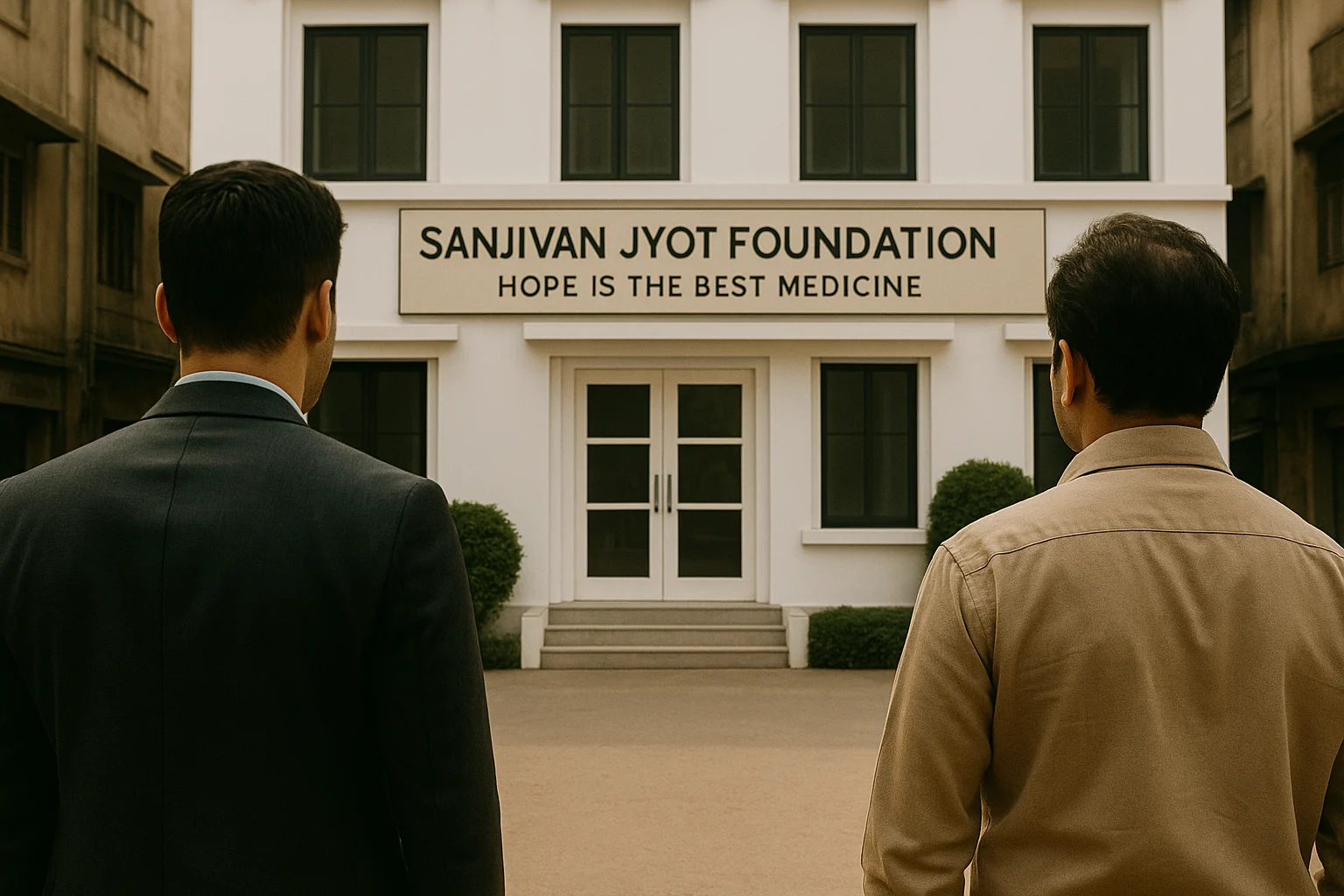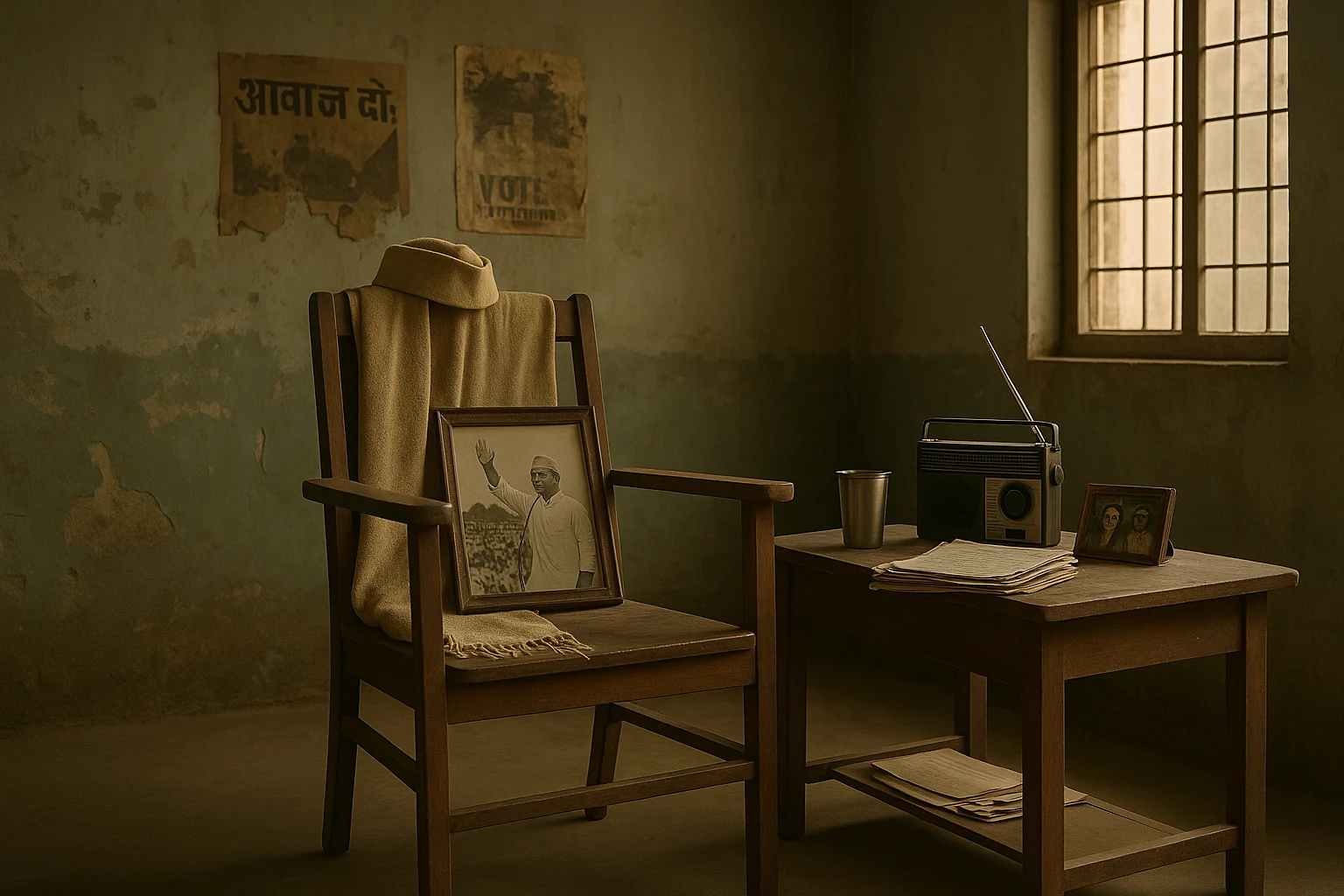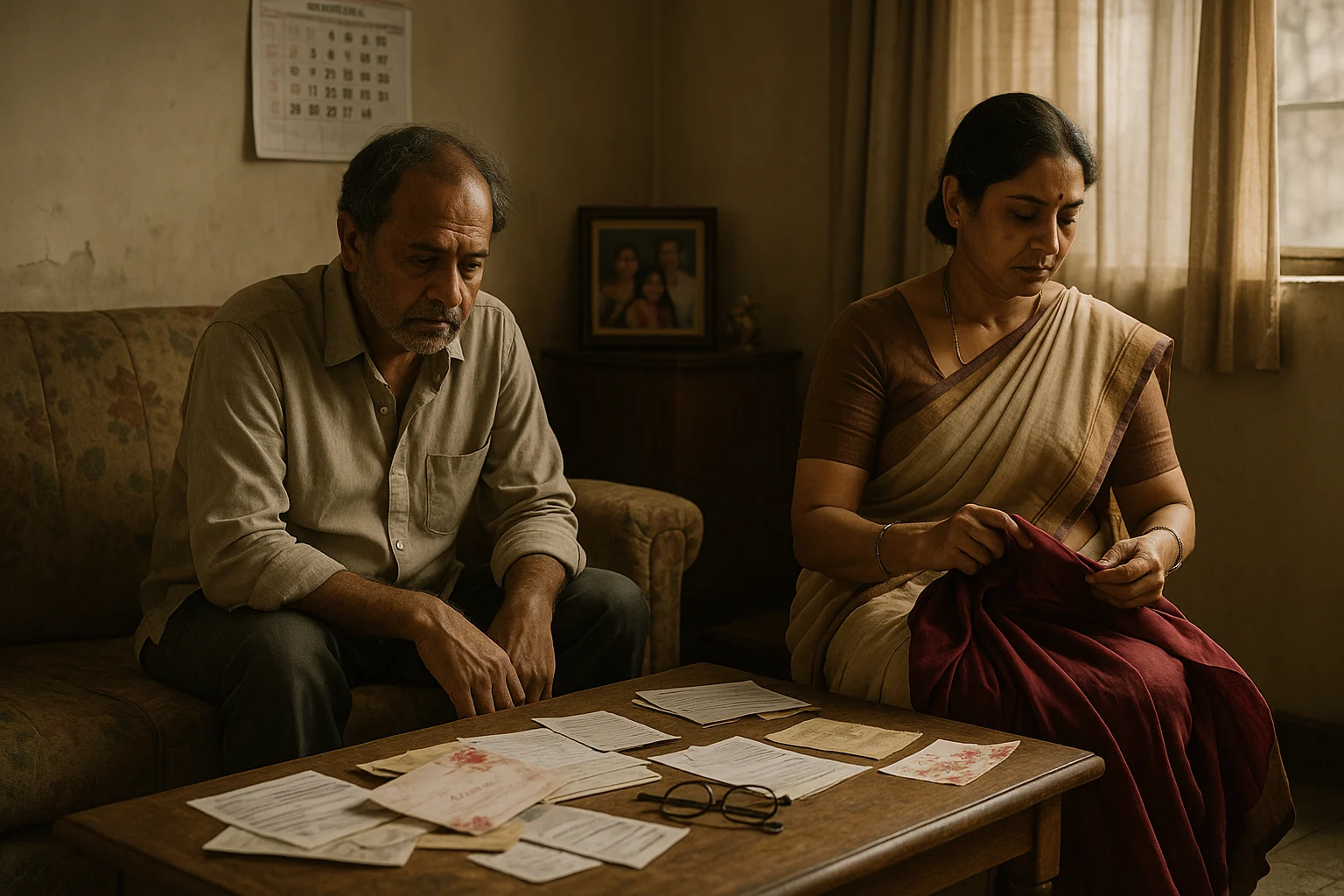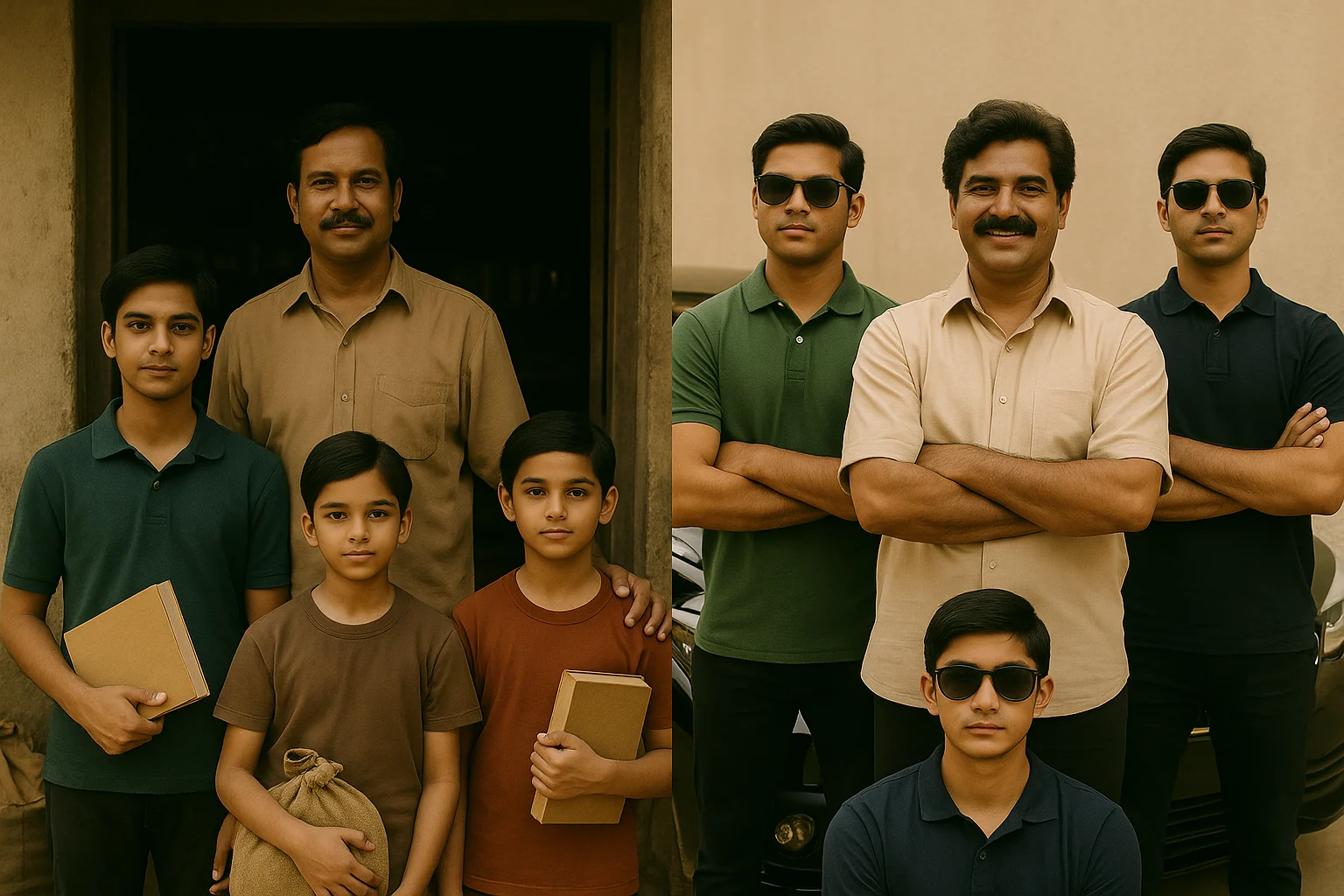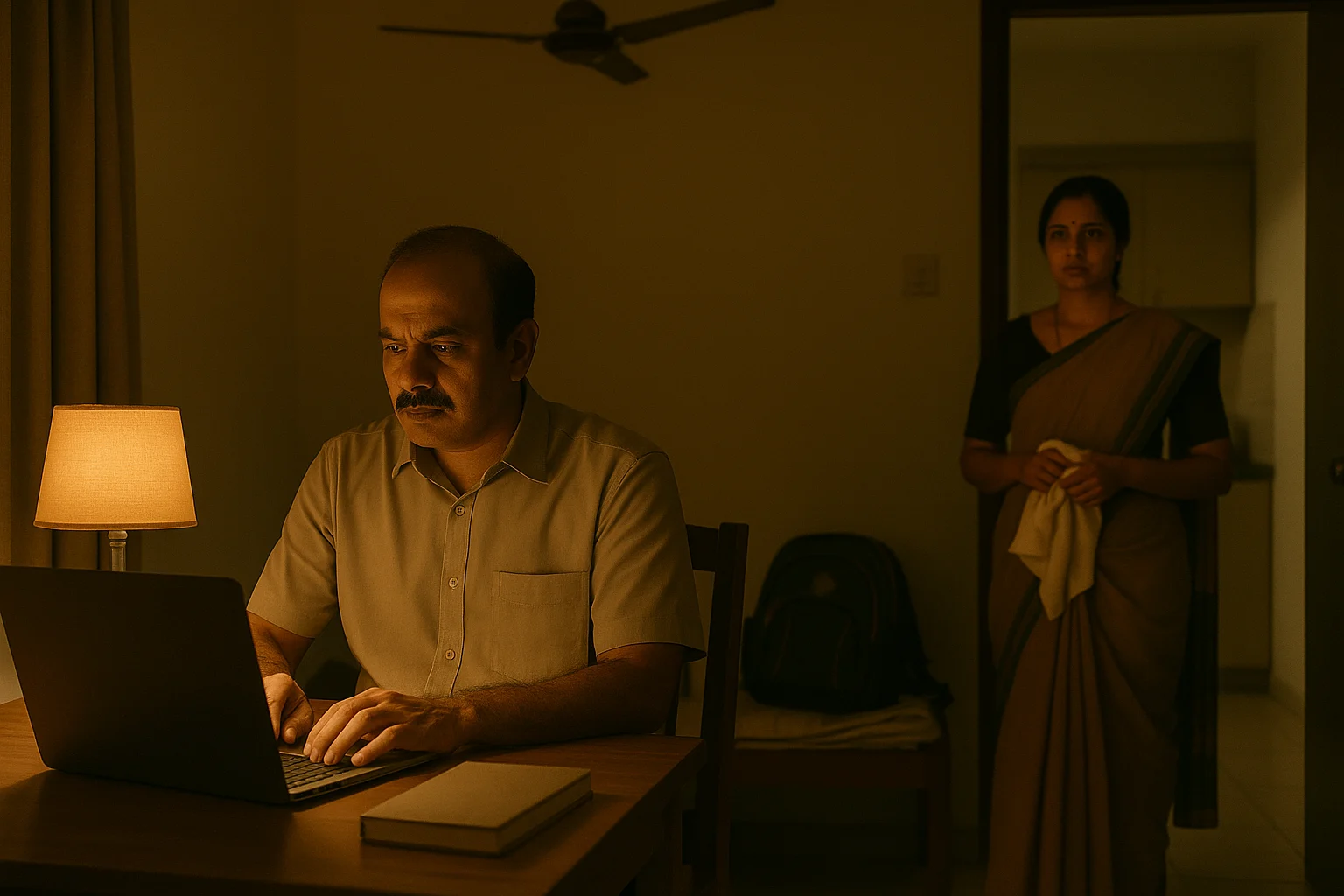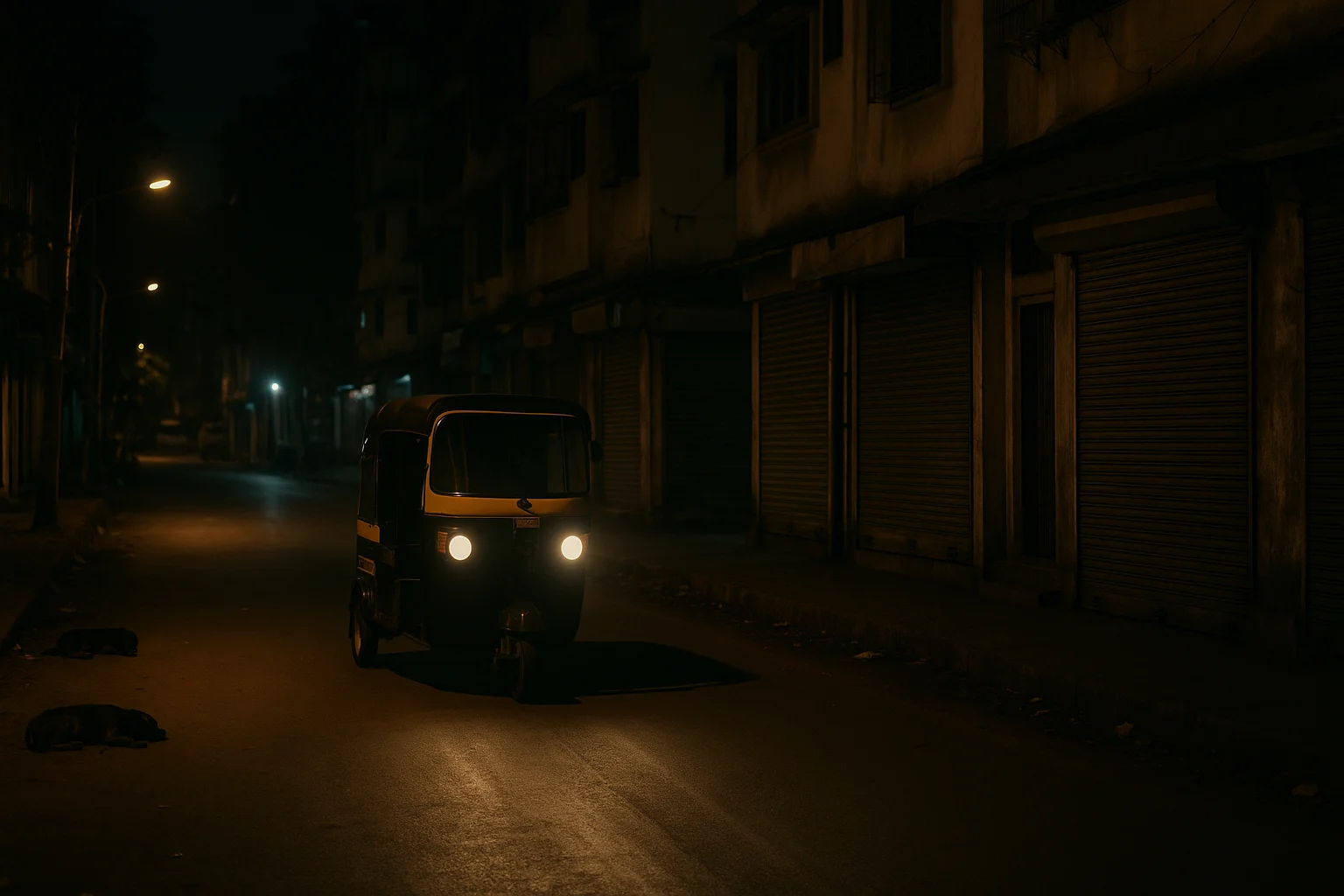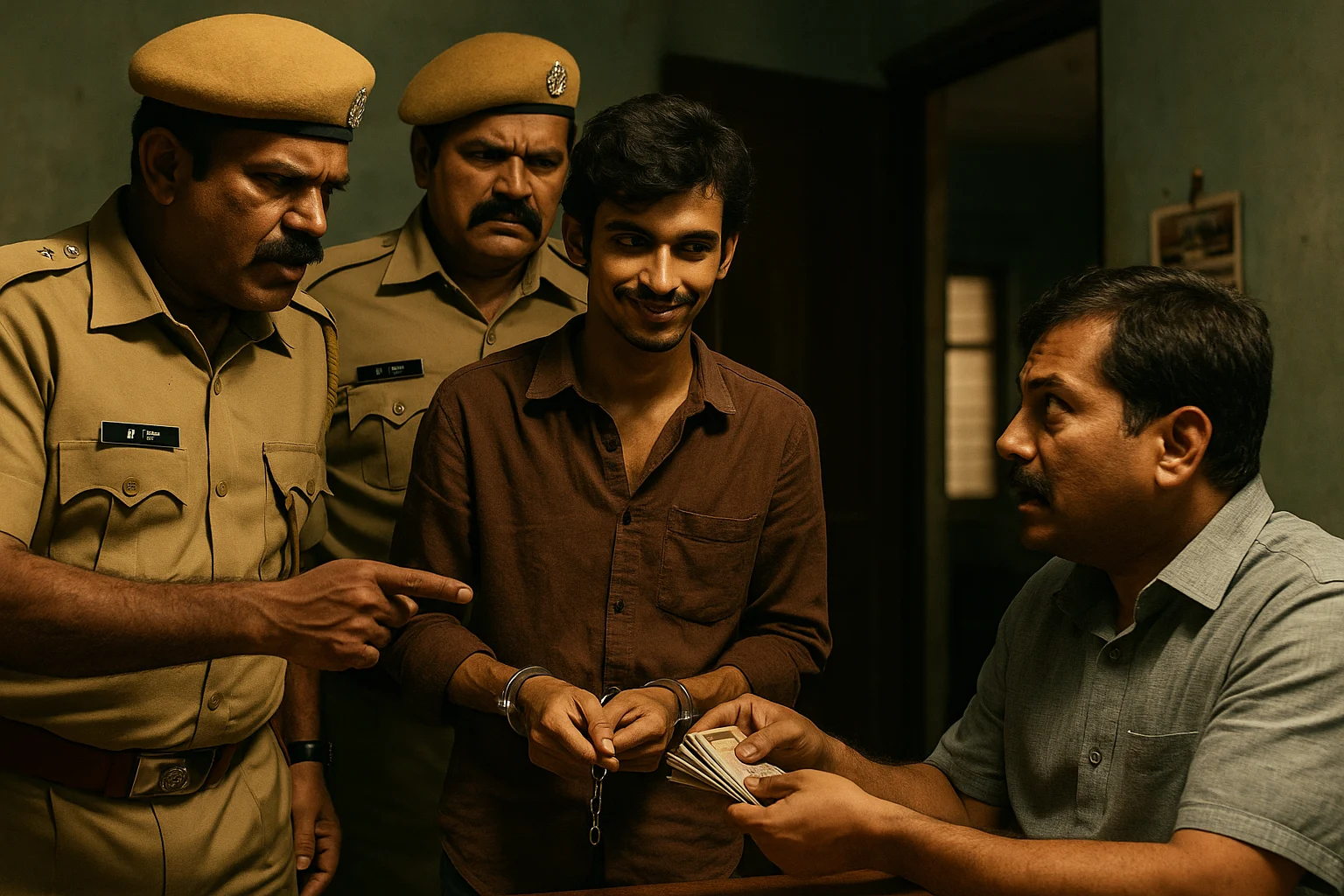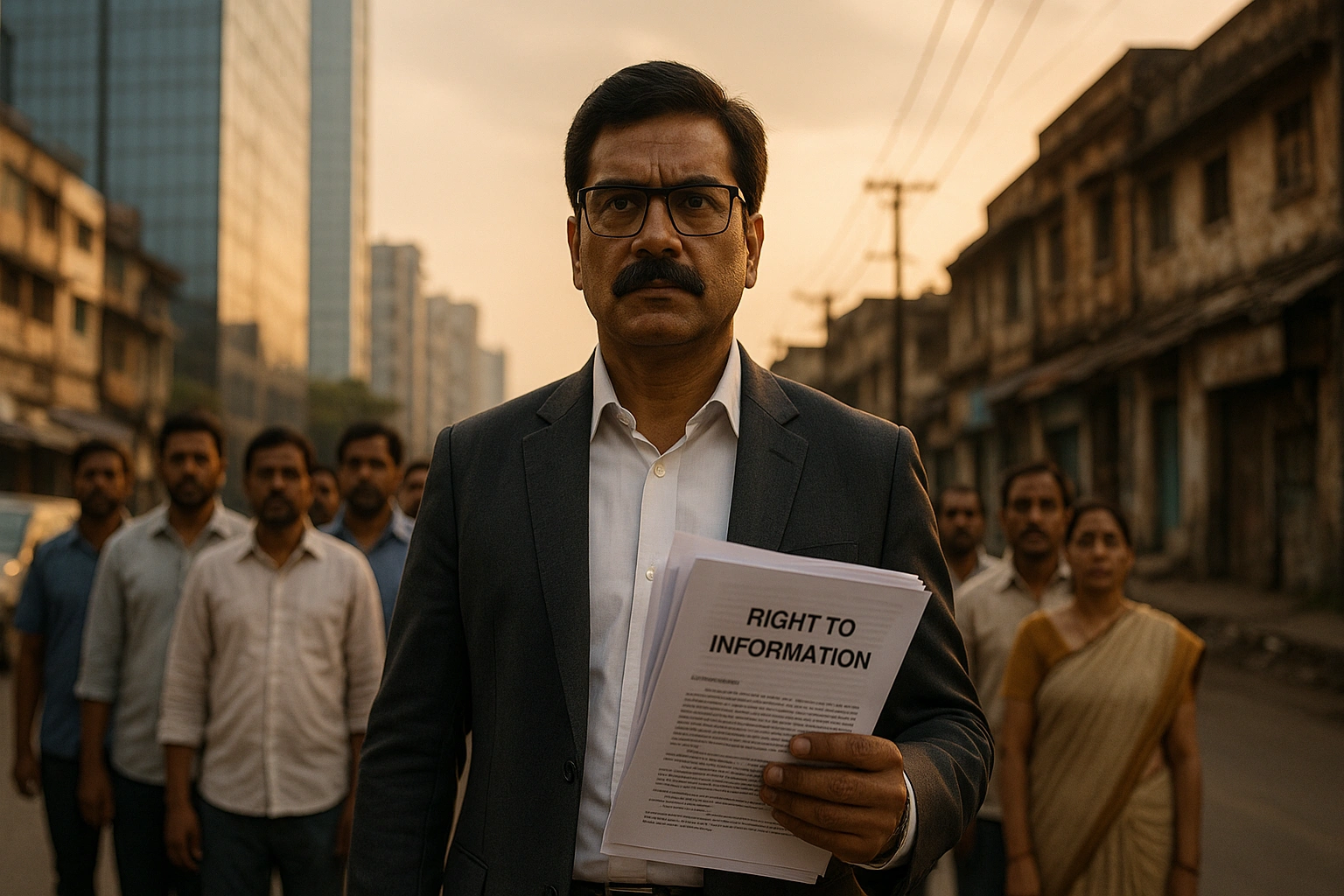In the heart of Delhi’s industrial belt, where the stench of garbage met the grit of ambition, began the story of Rinku — a man who had everything but the ethics to keep it.
Rinku wasn’t born poor, nor was he rich. He was, however, perpetually floating — not in talent, but in excuses. Work never excited him. Effort was optional. But fate — or rather, a well-placed uncle — landed him a job in a thriving waste management company. The company, known for its honest leadership and rapid growth, was run by Mr. Bansal — a man with zero ego but sharp instincts, a rare combination in Delhi’s business jungle.
Rinku joined as a labourer, sweeping compounds and lifting bins. But thanks to his uncle’s influence and his own gift of loud enthusiasm, he found himself quickly climbing up the ladder. Within a year, he was handed over maintenance responsibilities. And to everyone’s surprise — especially his own — he performed decently.
Rinku figured a basic trick. Instead of cutting corners, he initially began saving costs. He reused tools, negotiated small-time vendors, and showed Mr. Bansal reports with neat margins. Impressed, Mr. Bansal gave him more power — and less scrutiny. Rinku was now swimming in freedom and fake bills.

From Broomsticks to Bill Tricks
At first, it was petty — an inflated cost here, a fake plumbing job there. Rinku told himself, “Company’s earning crores. What’s five hundred here and there?” But as greed does, it grows fatter and louder. Soon, Rinku was billing ₹10,000 for a ₹2,000 fan replacement, quoting multiple labour charges for a job done by one man — sometimes not done at all.
Other managers noticed. They murmured, then mumbled louder.
One day, Mr. Bansal called him in. The office was dimly lit, as the power saver lights were on — ironically one of Rinku’s cost-cutting recommendations.
“Rinku,” Bansal said, sipping his lukewarm green tea, “what is this ₹42,000 expense for ‘maintenance overhauling’ in sector B?”
Rinku froze.
“Sir, that… actually the duct system—”
“There is no duct in sector B. It’s an open composting unit.”
Rinku blinked.
And just like that, his empire of lies collapsed.
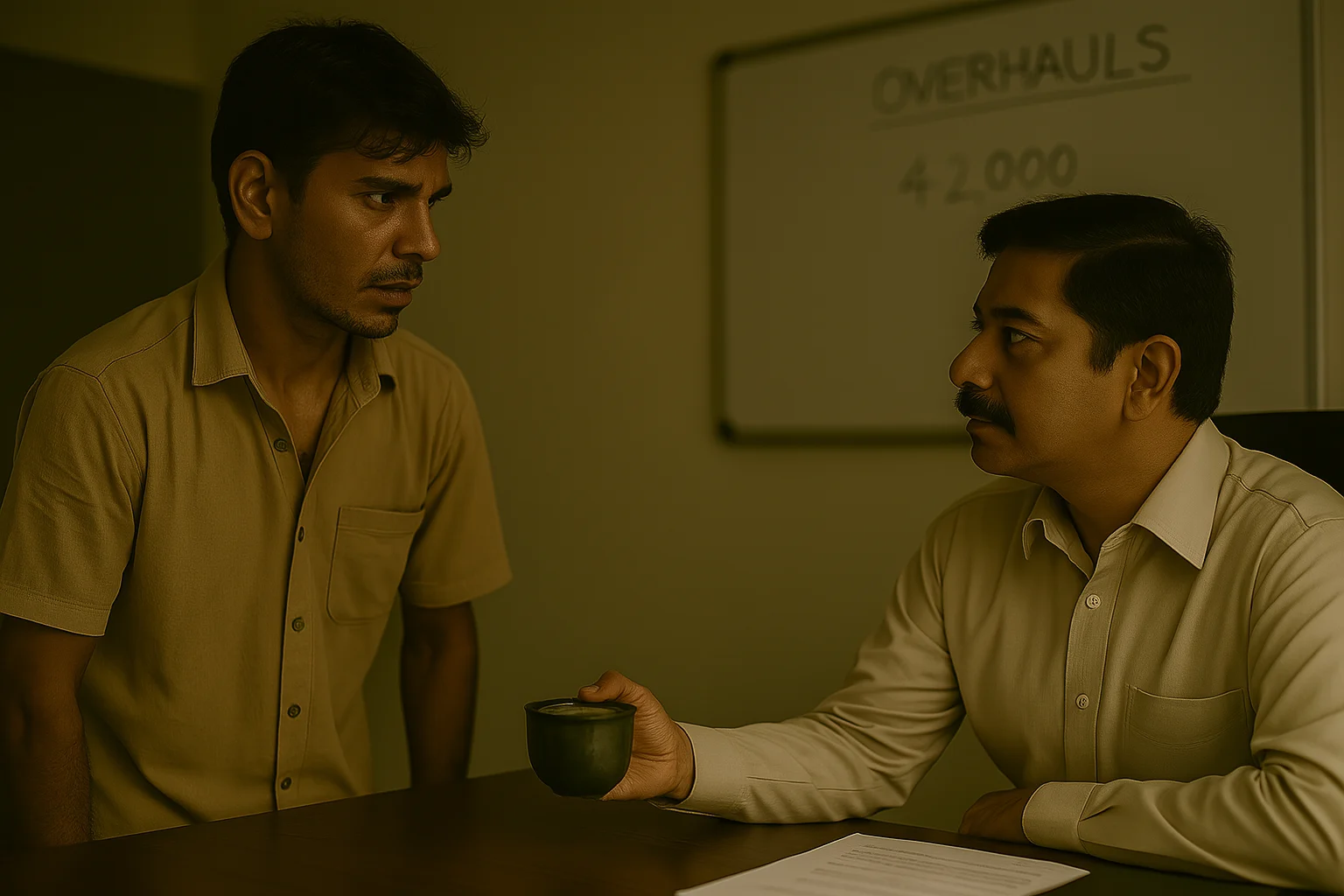
Leave of Absence, Leave of Sense
Stripped of his financial powers, Rinku felt humiliated. He didn’t apologize. He didn’t introspect. He planned.
Two days later, he walked into Mr. Bansal’s cabin with a moist handkerchief and a fabricated tragedy.
“Sir, Papa ji had a heart attack in the village. I have to go… emergency.”
Bansal nodded. “Go. Take your time.”
In truth, Rinku sat in a local dhaba that evening watching cricket and planning how his absence would mess up the office. “They’ll call me back in a week,” he thought, smugly munching a samosa.
But life, much like karma, doesn’t text you before arriving.
When Rinku returned, he found his chair occupied by Rajat — a silent, diligent man who didn’t speak much but had a spine made of steel.
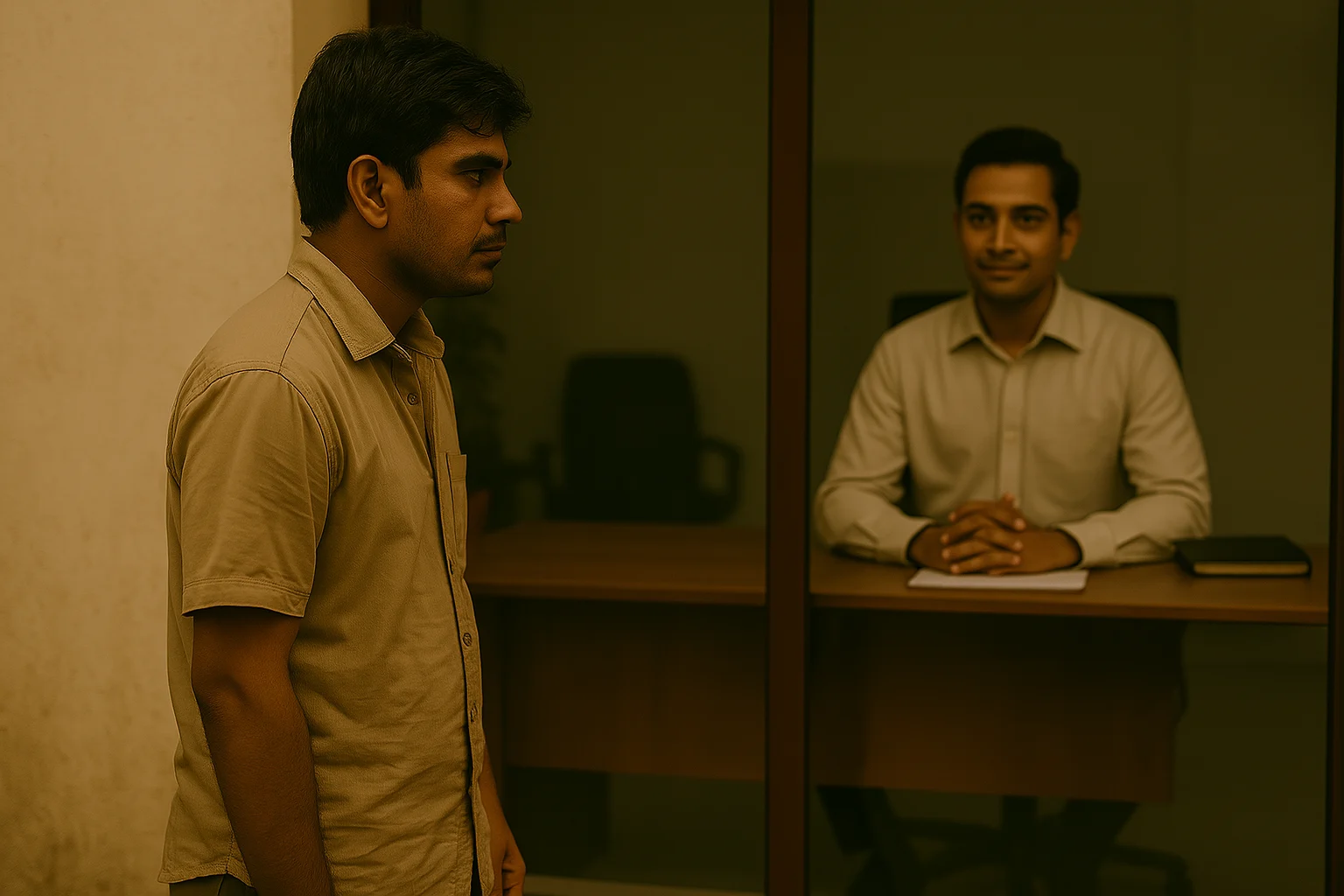
The Great Commission Comeback
Three months of unemployment passed like three decades. Rinku was jobless, penniless, and hopeless. He lived off his friends’ wallets and a street-side tea stall’s leftover bun maska.
Eventually, he swallowed his pride and messaged Mr. Bansal:
“Sir, I am sorry. I’m going through a very hard time. I am ready to work again.”
Bansal replied with the kindness only a good man can still afford:
“We can’t take you back full-time. But we have products to sell — compost bags, segregation bins, leaf mulching kits. Sell them, and you’ll earn more than your salary. All depends on your hard work.”
Rinku, insulted at first, agreed when he realized commission meant instant money.
But instead of knocking on doors and convincing RWAs to buy eco-bins, Rinku hatched another scheme.

Stealing Sales Instead of Making Them
He contacted a store manager in one of the company’s warehouse units. “Bhai, you keep some bags, give me a few. I’ll sell privately — share profit.”
The manager refused. “Not my thing, Rinku bhai.”
Rinku laughed it off. But he kept trying — even tried manipulating the labourers in the warehouse.
One of them leaked the plan.
The next morning, Rinku’s phone buzzed.
Mr. Bansal: “Come to the office. We need to talk.”
Rinku, instead of preparing an apology, stormed into the office. “Why are you believing others and not me?”
Bansal stayed calm. “Because truth doesn’t need convincing. You may leave.”
That was the last time Rinku saw the company gates.
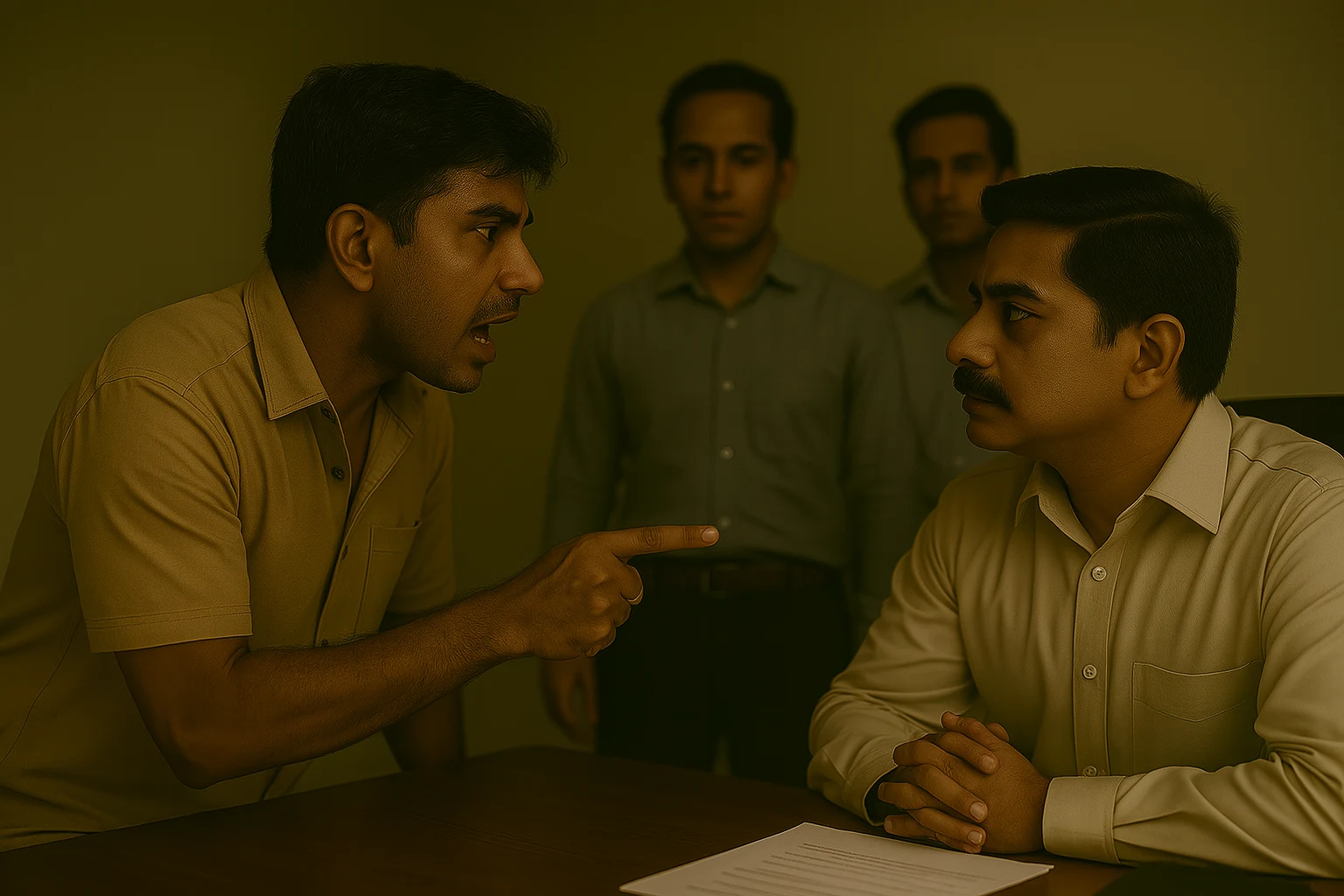
Years Later… Karma’s Invoice
Time passed. The waste management company expanded to multiple cities. They won awards for sustainability. Bansal even hired ex-labourers into executive roles after internal training programs.
One day, outside an NCR metro station, a man in torn sandals was seen sipping tap water from a broken cup.
It was Rinku.
A former colleague spotted him, offered him food.
Rinku hesitated. “They all have jobs now… even the ones who used to take orders from me.”
“Because they worked. You tricked.”
He didn’t respond.
He couldn’t.

Moral of the Story:
Trust is earned, not inherited. And once broken, even mercy has its limits.
Receive Stories and Articles in your Inbox!
We won’t send any promotional or spam emails.







